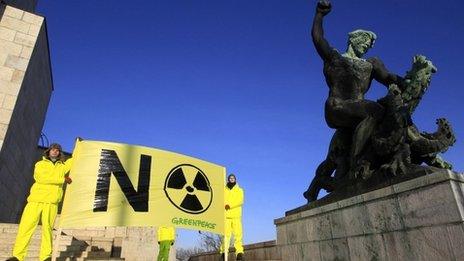Hungary challenged on nuclear choice with Russia
- Published
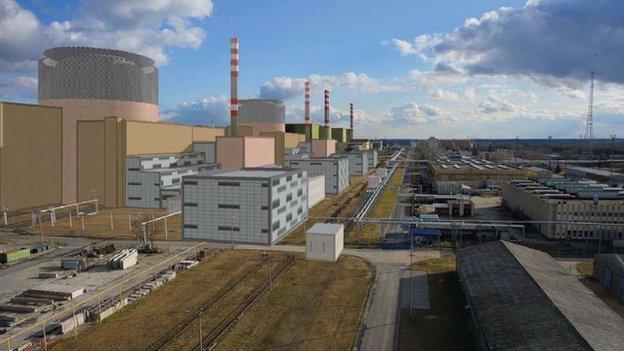
An artist's impression shows what the new reactors at the Paks nuclear plant would look like
Environmentalists in Hungary are hoping the European Commission will scupper a €12.5bn (£9bn) Hungarian-Russian deal to build two new 1,200 megawatt (MW) reactors at the Paks nuclear power station on the River Danube.
The expansion, they argue, will produce expensive energy, far beyond market prices, plunge Hungary into debt, and deepen dependence on Russia.
Viktor Orban's Fidesz government insists the reactors are necessary to cover growing energy demand, and will actually increase the country's energy independence.
The government also defends its decision to make the contracts for the new reactors secret for 30 years.
The existing four reactors at Paks generate 1,900 MW and cover 40% of Hungary's electricity needs.
Mr Orban based his 2014 election victory on promises to keep utility prices low.
Months earlier he struck a deal with Russian President Vladimir Putin that saw Russia agree to loan Hungary around 80% of the estimated construction cost of the new reactors at Paks. Hungary will pay Russia back from the electricity generated.
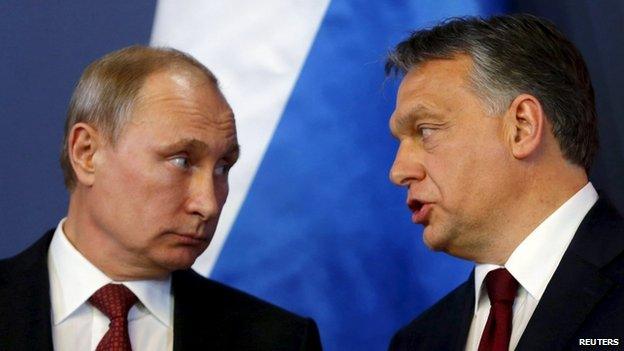
Russian President Vladimir Putin met Hungarian Prime Minister Viktor Orban in Budapest in February
By the time Hungary has to start paying for this next generation of reactors, in 2025, Mr Orban should be in comfortable retirement.
Nevertheless, the decision to sign a deal with Russia took even his own Fidesz party by surprise.
Built by the Soviet Union in the 1980s, the working life of the four existing reactors at Paks will run out between 2032 and 2037.
That means that no new decision on replacing them would actually be necessary until 2020 at the earliest.
Experts are also concerned that the overlap period, when old and new reactors are operating, will overstrain the Hungarian grid, and drive renewable and conventional energy producers from a market distorted by what they see as the overproduction of nuclear energy.
"Hungary is denying itself the opportunity to take into consideration at least six years' scientific development" by opting for nuclear expansion now, the Universities Student Committee established to debate the Paks expansion has just concluded.
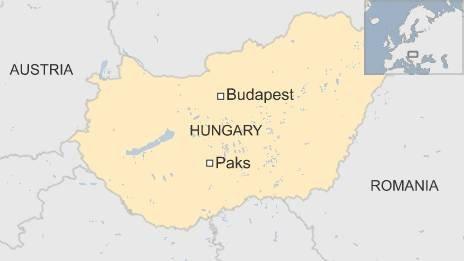
The falling cost of renewable energy sources could make the cost solar energy comparable with that from nuclear and fossil fuels very soon, opponents of Paks expansion believe.
"Hungary's energy needs can be supplied in 2030 without the 'Paks2' reactors," says Zsuzsanna Koritar of Energieaklub, a Budapest-based think tank.
"Nonsense," counters Attila Aszodi, the nuclear 'tsar' appointed by the Orban government, who says the expansion decision is both sensible and timely.
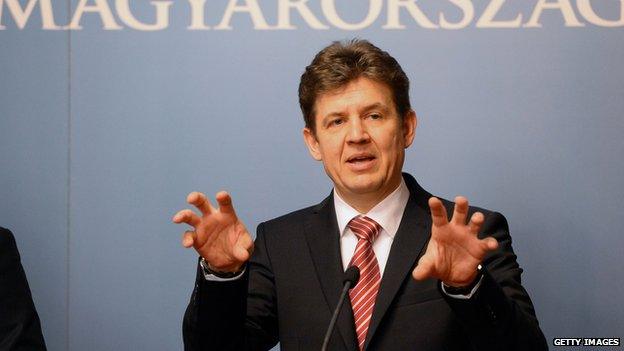
Attila Aszodi rejects claims that the decision to expand the power station was made largely in secret
Hungary's electricity demands can be expected to grow by 1% each year, he says. And 7,300 MW of the current 9,000 MW capacity of the country's 18 power stations will need replacing by 2030.
Meanwhile his own figures suggest that electricity from Paks would be 10 to 15% cheaper than solar.
Repaying Russia
Balazs Felsmann of the Corvinus University Research Centre says electricity prices would need to triple on the European market to make the new reactors economically feasible.
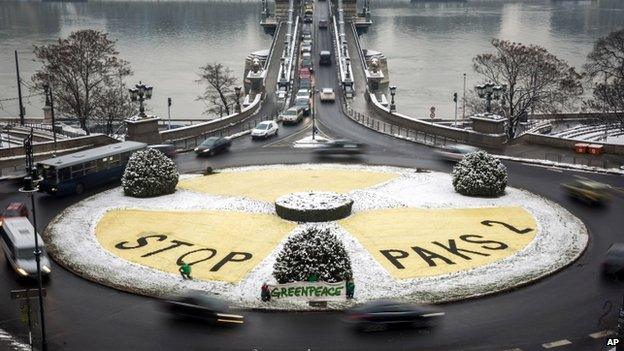
Protests were held in Budapest in the lead-up to the parliamentary vote over the Paks nuclear plant
And there are concerns that the project deadline might slip, meaning Hungary would have to start paying interest on the €10bn loan to Russia from 2025, while the project is still a building site.
Mr Aszodi says there are agreements in place to stop this happening, and he rejects claims that the decision to expand the power station was made largely in secret.
"The expansion of Paks was debated and agreed in the Hungarian parliament many times," he says.
His opponents hope the European Commission will rule that Hungary's 20% share of the construction costs will be judged to be a direct subsidy, which is illegal under competition rules.
A decision is expected in October.
- Published30 April 2015
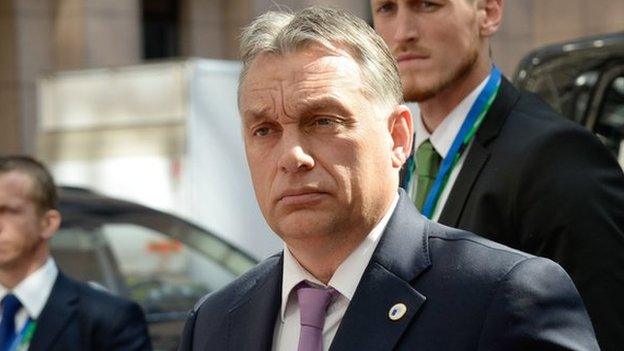
- Published17 February 2015
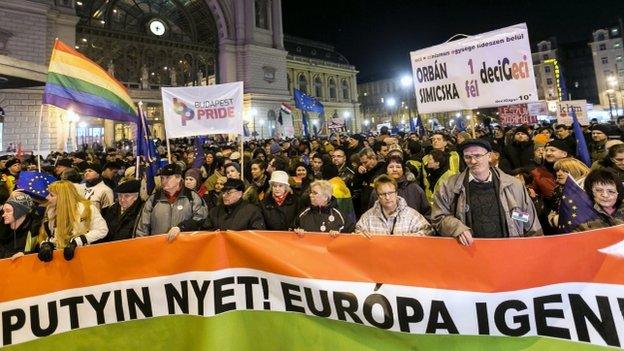
- Published6 February 2014
